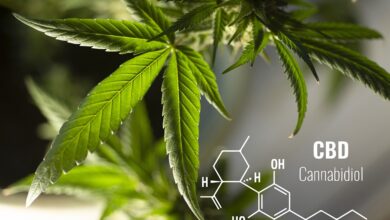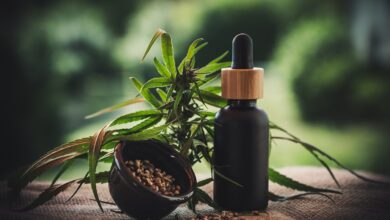Unpacking the Legal Status of Delta 9 THC in the United States

Delta 9 THC, or tetrahydrocannabinol, is a psychoactive compound found in cannabis. It is the chemical responsible for the “high” that is commonly associated with marijuana use. In recent years, there has been a growing interest in the potential therapeutic benefits of Delta 9 THC, leading to a rapidly evolving legal landscape surrounding its use, production, and sale in the United States.
In order to understand the legal status of Delta 9 THC, it is important to consider the historical context of cannabis regulation in the United States, as well as recent legislative and regulatory changes at both the federal and state levels.
Historical Context
Cannabis has a long and complex history of regulation in the United States. The plant was widely used for medicinal and industrial purposes in the 19th and early 20th centuries, but the passage of the Marihuana Tax Act in 1937 effectively criminalized the use and sale of cannabis, including hemp, which is a non-psychoactive variety of the plant.
The Controlled Substances Act of 1970 further classified cannabis as a Schedule I controlled substance, which is defined as having a high potential for abuse and no accepted medical use. This classification has had far-reaching consequences for the legal status of cannabis and its constituents, including Delta 9 THC.
Recent Legislative and Regulatory Changes
In recent years, there has been a significant shift in public opinion and policy towards cannabis. This has been fueled in part by the growing body of scientific research demonstrating the potential therapeutic benefits of cannabis and its constituents, including Delta 9 THC.
In 2018, the Agricultural Improvement Act, also known as the 2018 Farm Bill, was signed into law. This landmark piece of legislation legalized the cultivation and production of hemp, defined as cannabis with less than 0.3% Delta 9 THC by dry weight. This distinction effectively removed hemp and its derivatives from the list of controlled substances, opening the door for the legal production and sale of CBD products derived from hemp.
Furthermore, the 2018 Farm Bill did not specifically address the legal status of Delta 9 THC, leaving it in a legal gray area. This has led to conflicting interpretations of its legality at both the federal and state levels.
The Legal Status of Delta 9 THC
At the federal level, Delta 9 THC remains classified as a Schedule I controlled substance, alongside cannabis and its other constituents. This means that the possession, production, and sale of Delta 9 THC are still illegal under federal law, regardless of the source. However, the 2018 Farm Bill has created some confusion and ambiguity around the legality of Delta 9 THC derived from hemp.
Some argue that Delta 9 THC extracted from legal hemp should be considered legal under federal law, as long as it meets the 0.3% threshold set by the 2018 Farm Bill. Others contend that the Controlled Substances Act still applies to all forms of Delta 9 THC, regardless of its source.
As a result, the legal status of Delta 9 THC remains murky and subject to ongoing debate and litigation. Some states have taken matters into their own hands by passing laws that explicitly legalize the use and sale of Delta 9 THC derived from hemp, while others have maintained strict prohibitionist policies.
FAQs
Q: Is Delta 9 THC legal in the United States?
A: The legal status of Delta 9 THC in the United States is complex and varies by state. At the federal level, Delta 9 THC remains classified as a Schedule I controlled substance, but the 2018 Farm Bill has created some ambiguity around the legality of Delta 9 THC derived from hemp.
Q: Can I legally purchase Delta 9 THC products?
A: It depends on the laws of the state in which you reside. Some states have legalized the use and sale of Delta 9 THC derived from hemp, while others have maintained strict prohibitionist policies. It is important to check the laws and regulations in your state before purchasing Delta 9 THC products.
Q: Are there any medical uses for Delta 9 THC?
A: There is a growing body of scientific research suggesting that Delta 9 THC may have potential therapeutic benefits, particularly in the treatment of pain, nausea, and appetite stimulation. However, more research is needed to fully understand its medical uses and potential risks.
Q: What about Delta 9 THC products sold as dietary supplements or food additives?
A: The legal status of Delta 9 THC products sold as dietary supplements or food additives is even more complex, as these products are subject to additional federal regulations. The Food and Drug Administration has stated that it is illegal to sell products containing Delta 9 THC as dietary supplements or food additives, regardless of their source.
In conclusion, the legal status of Delta 9 THC in the United States is still evolving and subject to ongoing debate and litigation. The 2018 Farm Bill has created some ambiguity around its legality, leading to conflicting interpretations at both the federal and state levels. It is important for consumers, businesses, and policymakers to stay informed of developments in cannabis regulation and consult legal counsel when in doubt.
[ad_2]




